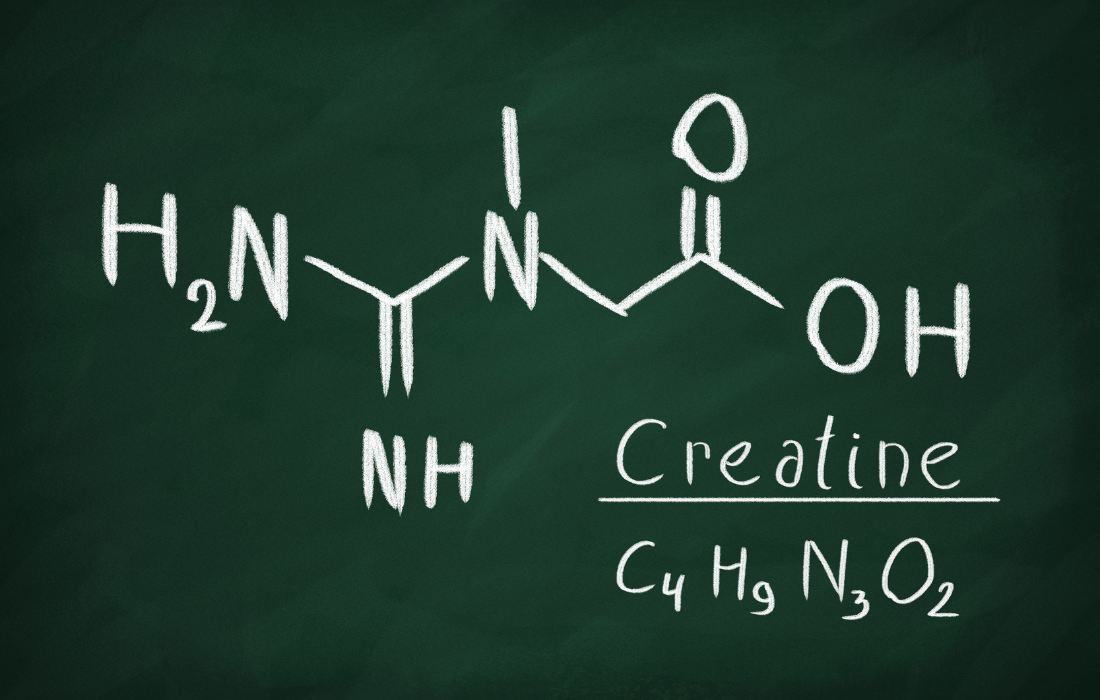Creatine is one of the most misunderstood yet essential supplements in the world of health, fitness, and longevity. Whether you’re an athlete, a biohacker, or just someone looking to optimize physical and cognitive function, creatine should be on your radar. Despite being one of the most researched supplements of all time, it’s still plagued by myths and misinformation. Some people think it’s just for gym bros chasing muscle gains, while others worry it will make them go bald or cause kidney damage.
In reality, creatine is a naturally occurring compound that plays a critical role in energy production, cognitive function, and even methylation—an essential process for genetic expression and detoxification. It’s not just about lifting heavier weights; it’s about thinking sharper, recovering faster, and aging better.
In this deep dive, we’ll explore the true power of creatine, bust the biggest myths, and explain why creatine monohydrate reigns supreme over other forms. We’ll also discuss the significance of creatine for individuals with MTHFR gene mutations and my choice brand of creatine.
By the time you finish reading, you’ll realize that creatine isn’t just a supplement—it’s an essential nutrient for peak performance in both body and mind.
Creatine for Cognitive Performance
Creatine isn’t just for biceps—it’s also for brains. The brain requires a ton of energy to function properly, and creatine plays a major role in replenishing that energy.
Improved Memory and Processing Speed: Multiple studies have found that creatine supplementation significantly improved working memory and intelligence test scores, particularly in vegetarians and older adults who might have lower baseline levels of creatine intake.
Neuroprotection Against Aging and Neurodegenerative Diseases: Research suggests creatine may help reduce the damage caused by oxidative stress and neurodegeneration, making it a promising supplement for long-term brain health and even has been studied to treat Parkinson’s disease.
Mood and Depression: Low creatine levels have been linked to an increased risk of depression, and some studies indicate that supplementation may have an antidepressant effect, especially in women with treatment-resistant depression.
Cognitive Performance on Sleep-Deprived Days: Research has shown that creatine supplementation can help maintain cognitive function even in states of sleep deprivation. A study published in Scientific Reports found that individuals taking creatine performed better in reaction time and problem-solving tasks after sleep deprivation compared to those who did not supplement.
Improved Mental Fatigue Resistance: Studies indicate that creatine can help sustain mental performance during prolonged cognitive tasks, making it beneficial for students, professionals, and anyone engaged in mentally demanding work.
Creatine for Physical Performance
Increased Strength and Power Output: A 2002 meta-analysis found that creatine supplementation led to a 5-15% increase in strength and performance across multiple sports.
Faster Recovery: Creatine helps reduce muscle damage and inflammation post-exercise, allowing for quicker recovery between workouts.
Improved Hydration and Cellular Volumization: Creatine pulls water into muscle cells, improving hydration and muscle function, particularly beneficial for endurance athletes and those training in hot environments.
Enhanced Sprint Performance and Explosiveness: Creatine has been shown to improve anaerobic performance, particularly in sports requiring short bursts of high-intensity effort, such as sprinting and weightlifting.
Better Muscle Endurance: Research supports that creatine can delay muscle fatigue, allowing for longer, more effective training sessions without premature exhaustion.
The Importance of Creatine for MTHFR Gene Mutations
The MTHFR gene is responsible for producing an enzyme that helps process folate (vitamin B9) and regulate homocysteine levels. When this gene is impaired (which is surprisingly common), the body struggles to efficiently methylate nutrients, leading to issues like poor detoxification, increased inflammation, and neurotransmitter imbalances.
Why Creatine Matters for MTHFR Mutations
Creatine Reduces the Methylation Burden: The body uses methylation to synthesize creatine. If you’re not supplementing, your body is constantly stealing valuable methyl groups to make creatine instead of using them for other essential processes (like detoxification and DNA repair).
Lower Homocysteine Levels: High homocysteine is a risk factor for cardiovascular disease, and creatine supplementation has been shown to reduce homocysteine levels by easing the demand on the methylation cycle.
Debunking the Biggest Creatine Myths
Myth #1: Creatine Causes Kidney and Liver Damage
One of the most persistent myths about creatine is that it damages the kidneys or liver. This misconception likely stems from the fact that creatine supplementation increases creatinine levels, a byproduct of creatine metabolism. However, multiple studies—including those published in the International Journal of Sport Nutrition Exercise Metabolism—have shown that creatine has no harmful effects on kidney or liver function in healthy individuals. If you already have pre-existing kidney disease, consult a doctor, but for the vast majority, creatine is perfectly safe.
Myth #2: Creatine Causes Dehydration and Cramps
Some believe that creatine leads to dehydration and muscle cramps because it pulls water into muscle cells. However, research has consistently shown that creatine actually helps improve hydration status, especially in athletes training in hot environments. A study in the British Journal of Sports Medicine found no link between creatine use and increased cramps or dehydration; in fact, creatine may enhance thermoregulation and reduce the risk of heat-related issues.
Myth #3: Creatine Only Helps Bodybuilders
Creatine is widely used in the fitness world, but its benefits extend far beyond muscle growth. It enhances endurance, speeds up recovery, boosts cognitive function, and even supports heart and bone health. Whether you’re a sprinter, a wrestler, a weekend warrior, or just looking to keep your brain sharp, creatine can be beneficial.
Myth #4: Creatine Makes You Fat or Bloated
Some people worry that creatine leads to weight gain due to water retention. While creatine does increase water content inside muscle cells, this is not the same as gaining fat or bloating. Instead, it results in fuller, more hydrated muscles. If taken correctly with proper hydration, creatine does not cause noticeable bloating.
Myth #5: Creatine Causes Hair Loss
This myth likely originated from a single study in 2009 that suggested creatine might increase dihydrotestosterone (DHT), a hormone linked to male pattern baldness. However, no other studies have replicated this finding, and there is zero direct evidence that creatine contributes to hair loss. If creatine did cause baldness, the majority of the male population would be rocking the Vin Diesel look by now.
Disclaimer: I was bald before I started taking creatine and most of my friends with the thickest heads of hair take more than the recommended dose of creatine, so don’t come at me with this one.
Myth #6: You Need to Cycle On and Off Creatine
Some people believe that taking creatine continuously will cause the body to stop producing it naturally. However, there is no evidence supporting this claim. The body continues to synthesize creatine even with long-term supplementation, and no cycling is required.
Why Creatine Monohydrate is King (And Why Other Forms Are Mostly Marketing Gimmicks)
Why Creatine Monohydrate is Superior
Most Researched: Over 1,000 studies back up its efficacy, making it the most trusted form of creatine.
Most Cost-Effective: Other forms, like creatine HCL or buffered creatine, cost significantly more but offer no proven additional benefits.
Highest Absorption Rate: Despite marketing claims, creatine monohydrate has excellent bioavailability and absorption. If it ain’t broke, don’t fix it.
Why I Choose Lineage Provisions Creatine Monohydrate

I don’t just take any creatine—I take Lineage Provisions Creatine Monohydrate because quality matters.
Pure and Simple: No fillers, no artificial flavors, just high-quality creatine monohydrate.
Third-Party Tested: Many supplement companies cut corners, but Lineage Provisions ensures purity and potency with third-party lab testing.
Dissolves Easily: No gritty residue or clumping—just smooth mixing and easy absorption.
How to Take Creatine for Maximum Benefits
Now that you know why creatine is essential, let’s talk about how to take it effectively.
Daily Dosage: What’s the Right Amount?
The standard recommendation is 3-5 grams per day, but I recommend taking anywhere from 5-20 grams. This is enough to saturate your muscles and reap all the benefits without wasting excess creatine. If you’re an athlete or engage in high-intensity exercise frequently, you may lean towards the higher end of this range.
Do You Need a Loading Phase?
The old-school approach suggested a “loading phase” of 20 grams per day for a week before tapering down to a maintenance dose. While this can help you reach full saturation faster, it’s not necessary. You can simply take 5-15 grams daily, and your body will reach full saturation within 3-4 weeks.
Timing: When Should You Take Creatine?
Post-Workout: Many athletes prefer taking creatine after a workout, as insulin levels are elevated, which may aid absorption.
Anytime: Realistically, as long as you’re taking it consistently, it doesn’t matter when you take it. Just get it in daily.
Mixing and Consumption
Creatine monohydrate dissolves best in warm water, but you can mix it with juice, a protein shake, or even coffee. The key is to ensure it’s fully dissolved for maximum absorption.
The Bottom Line: Creatine is a No-Brainer
From physical performance to cognitive function, heart health, and even bone density, creatine is one of the most powerful, science-backed supplements on the planet. And with its affordability and lack of side effects, there’s really no reason not to take it.
If you’re looking for the best source, Lineage Provisions Creatine Monohydrate is my go-to choice for purity, effectiveness, and third-party testing.
So, if you haven’t already, start supplementing with creatine today—your future self will thank you.












